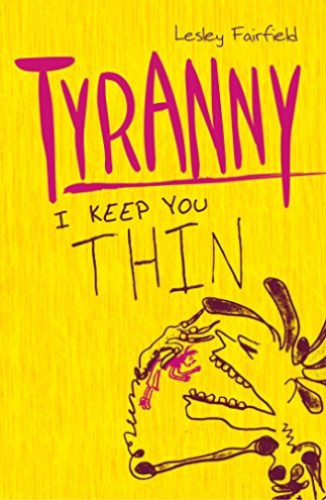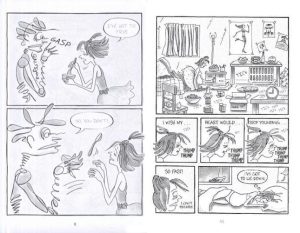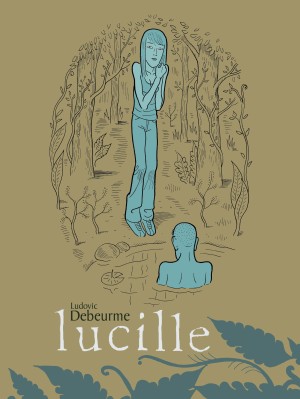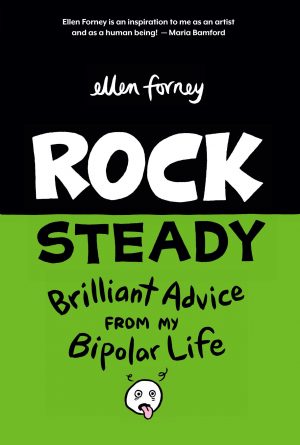Review by Ian Keogh
Tyranny isn’t packaged to look like a graphic novel, which is an interesting decision. In 2011 why would that be the case? Perhaps the thought was that something resembling a traditional paperback is likely to attract greater attention. Either way, Lesley Fairfield’s efforts in considering self-image, anorexia and bulimia are sympathetic, informative and understanding. This is a book a lot of young people could read and benefit from.
It’s a first person narrative about Anna, who’s unhappy at the way her body changes during puberty, illustrations showing her looking into the mirror, contrasting reality with what she sees. Outside influences are only mentioned in passing, making every decision more or less Anna’s own. She’s not comparing herself with other women, just constantly striving for a misguided idealised version of herself, and achieving that means eating as little as possible. When her body rebels, in effect forcing Anna to eat, she’s confronted by her hallucinogenic other self Tyranny, who introduces the concept of eating then throwing up what’s been consumed.
Anna’s deterioration makes for distressing reading as Fairfield shows Anna failing to take in what everyone else can see, that there’s nothing physically wrong with the way she looks at the start of the process. An interesting visual analogy uses Leonardo Da Vinci’s model of humanity The Vitruvian Man, showing how distorted pictures of most models are, and Fairfield’s depiction of Tyranny as an abstracted bag of bones is terrifying.
It can be difficult for anyone who’s never experienced a form of mental illness to entirely understand the thinking of someone who is ill, and the focus on Anna and her thoughts all the way through Tyranny gives as good an understanding as is possible without suffering. It would be a cautionary tale without hope if Anna became the worst case scenario, but her story isn’t without casualties and the senseless loss of life resonates.
Tyranny printed in black and white with grey tones is fine as a possible reflection of a fading life, but the grey lettering is puzzling, as it’s difficult to read, especially on a grey background. What were they thinking? Otherwise the neat cartooning is expressive throughout, with Fairfield having a natural instinct for distilling to the essence.
There’s no deep delve into the causes of poor self-image, as it would dilute the priority of showing Anna’s thought processes and her deterioration. Informed by personal experience, Fairfield emphasises that recovery is not a quick process, and it takes the body time to adjust to normal eating habits again.
Eye-opening, informative and non-judgemental, Tyranny should be on the bookshelf of every school library.





